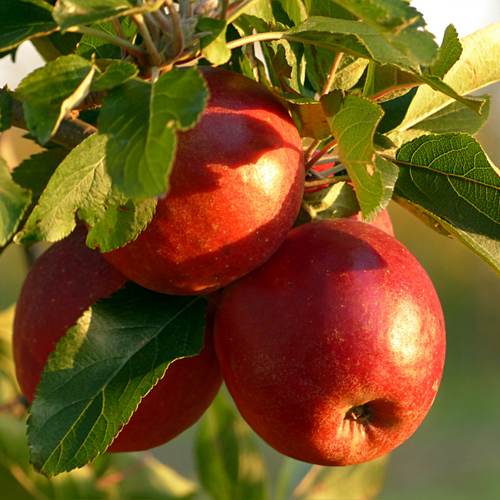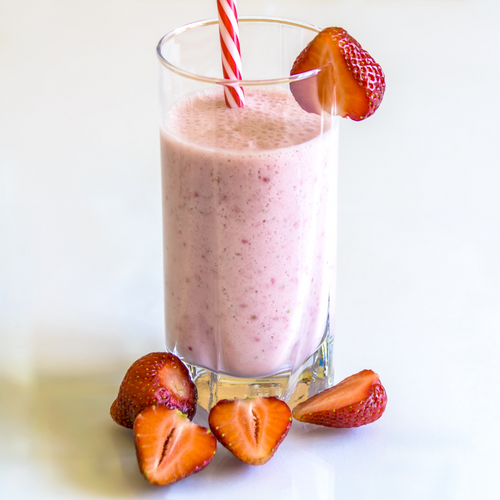What you must remember :
- Recent studies have begun to establish an intriguing link between the gut microbiota and psychiatric disorders such as depression.
- Significant alterations in the composition and diversity of the gut microbiota have been demonstrated in people suffering from various illnesses, including psychiatric disorders such as depression.
- There is a complex network of communication between the gut and the brain, called the "gut-brain axis", which occurs through communication pathways.
- Diet, medications or even chronic stress are examples of factors that can alter the intestinal microbiota.
- An imbalance in the intestinal microbiota is often found in people with depression.
- Probiotics help restore a healthy intestinal microbiota and thus fight against the symptoms associated with depression.
In recent years, a growing area of research suggests that mental health may be influenced by unsuspected players – the billions of microorganisms that inhabit our gut, called the gut microbiota . Once considered simply a participant in digestion and immunity, it is now also proving to be a potentially powerful player in mental health. Indeed, recent studies have begun to establish an intriguing link between the gut microbiota and psychiatric disorders such as depression. Although this relationship may seem unusual at first glance, it opens the way to new perspectives in the understanding and treatment of depression, by connecting the gut and the mind.
The intestinal microbiota, a player in depression
What is the intestinal microbiota?
The intestinal microbiota, also known as intestinal flora, refers to all the microorganisms , mainly bacteria, that reside in our digestive system. They play a crucial role in particular in the digestion of food, the regulation of immunity and the synthesis of certain essential vitamins. It is a dynamic, ever-changing ecosystem, influenced by various factors such as diet, lifestyle and medical treatments.
What is depression?
Depression is a complex mental illness that can significantly impair an individual's quality of life and have a significant impact on their social interactions as well as their daily life. The prevalence of this disease is alarming worldwide. Indeed, according to the World Health Organization (WHO), more than 322 million people of all ages suffer from depression , making it the leading cause of disability in the world. Did you know that in France, one in five people have suffered or will suffer from depression in their life? But then, how is depression characterized? Depressive disorder is described as “a succession of characterized depressive episodes, resulting in numerous symptoms – including pathological sadness, loss of pleasure and cognitive symptoms – with a major impact on the life of the patient and those around them. » (INSERM). We speak of depression if the symptoms observed last at least two weeks .
A modification of the intestinal microbiota observed in certain diseases
When we are healthy, our intestines are home to a vibrant living ecosystem rich in microorganisms, primarily gut bacteria. However, not all of these bacteria have the same influence on our body. Indeed, there are good bacteria which have beneficial effects for our health but also bacteria qualified as “bad bacteria”. Recent studies have demonstrated significant alterations in the composition and diversity of the gut microbiota in people suffering from various illnesses, including psychiatric disorders such as depression. Researchers have observed that certain types of beneficial bacteria are often reduced in number, while other potentially harmful bacteria can proliferate. This disruption in the balance of the microbiota, called dysbiosis , has been linked to health problems, including mental disorders.
How does our gut communicate with our brain?
The idea that our gut can converse with our brain may seem strange at first glance, but there is actually a complex network of communication between these two organs. This gut-brain connection, also called the " gut-brain axis ", occurs through four communication pathways: neuronal, blood, immune and endocrine. Let’s take stock of these pathways.
The neural pathway 🧠
This pathway involves chemical molecules synthesized by intestinal bacteria called “neurotransmitters”, which include dopamine. The vagus nerve plays a central role in this pathway by allowing electrical and chemical signals to travel back and forth, intimately connecting our guts to our brain. This two-way link between the two organs facilitates the transmission of essential information for the regulation of our mood, our emotions and even our bodily functions.
The blood route 🩸
The gut-brain axis also functions through blood circulation. Chemicals, nutrients and signals produced by our gut are carried through our blood and reach the brain, causing changes in how it functions. Different substances travel through this pathway, and establish a silent dialogue between the two organs.
The immune pathway ⚡️
The bacteria present in our intestine are capable of synthesizing molecules capable of activating immune intestinal cells. Once activated, these will produce molecules acting as chemical messengers. They can enter the brain and influence neurological processes, sometimes changing our mood and cognition.
The endocrine (hormonal) pathway 💪🏼
Hormones are key chemical messengers that orchestrate a variety of physiological processes in our bodies. Some of the molecules produced by our intestine can interact with the hormonal system, thus influencing the regulation of appetite, stress and emotions in particular. Hormones such as cortisol, known as the “stress hormone,” can be modulated by our gut microbiota, thereby affecting our emotional state.
These four communication pathways do not operate in isolation, but intersect to form a complex network that connects our gut to our brain.
What are the factors responsible for an alteration of our intestinal microbiota?
As you will have understood, the numerous intestinal bacteria which constitute our microbiota play an essential role for our health. However, this delicate ecosystem can be disrupted by a variety of factors, which can impact our health and well-being. Let's take a look at the main culprits responsible for an alteration of our intestinal microbiota.
1 - An unbalanced and unvaried diet
We repeat it often, but what we eat has a significant impact on the composition of our intestinal flora. It has been shown that a diet high in processed (industrial) foods, refined sugars and saturated fats can encourage the growth of certain harmful bacteria, to the detriment of beneficial bacteria. Monitor the presence and number of additives found in the foods you consume. On the contrary, a diversified diet rich in fruits, fresh vegetables, oilseeds, legumes and fermented foods provides fiber and essential nutrients to support the diversity and balance of our microbiota.
2 - Antibiotic treatments
Antibiotics, although essential for fighting bacterial infections, can also be veritable “nuclear bombs” and disrupt our microbiota by killing not only harmful bacteria, but also beneficial ones. This can lead to an imbalance in bacterial composition, and be responsible for various health problems.
3 - Chronic stress
Our emotional state can also play a role in the health of our microbiota. Indeed, chronic stress can disrupt the balance of our intestinal bacteria, because it can influence the production of certain chemical substances having an impact on bacterial growth. In turn, a disrupted microbiota can also affect our response to stress, creating a vicious cycle.
4 - Infections and diseases
Certain infections and diseases, such as gastroenteritis, can temporarily unbalance our microbiota by disrupting the population of bacteria present in our intestines. Chronic diseases like irritable bowel syndrome (IBS) can also influence the composition of the microbiota.
5 – A sedentary lifestyle
Regular physical exercise appears to play a role in maintaining the diversity and stability of the gut microbiota. It is important to ensure that you do not have a sedentary lifestyle to prevent the proportion of beneficial bacteria from decreasing and thus promote good general health.
6 - The environment
Chemicals in our environment, such as chemicals used in household products and pesticides, can potentially affect the composition of our microbiota.
An imbalance in the intestinal microbiota at the heart of depression
An imbalance in the gut microbiota can disrupt gut-brain communication mechanisms, which could have potential implications in the development of depression. Indeed, as we saw earlier in this article, when the intestinal microbiota is balanced, communication between the two organs takes place through different pathways. However, if the microbiota is disrupted, these pathways can be altered.
First, when beneficial and harmful bacteria are no longer in harmony in our gut, it can impact the production of neurotransmitters , the chemical messengers responsible for our emotions and mood. For example, serotonin, often called the “happiness hormone,” is mainly produced in our intestines. A disrupted microbiota can reduce serotonin production, which can alter our mood and make us more vulnerable to depression.
Additionally, an altered gut microbiota can induce chronic inflammation in the gut, generating inflammatory molecules that can reach the brain through the bloodstream. This brain inflammation is found in patients with depression and impairs brain function, such as the neurological processes involved in mood regulation. This contributes to the appearance of depressive symptoms.
Finally, an unbalanced microbiota can influence signals sent via the vagus nerve , disrupting communications between the digestive system and the brain. Chronic stress, often linked to depression, can also exacerbate dysbiosis, creating a vicious cycle where disrupted microbiota can amplify depression symptoms and vice versa.
Restore the balance of your intestinal microbiota to prevent depression
The gut microbiota plays a crucial role in our mental health. We have seen that an imbalance in its composition could favor the emergence of depression. However, it is encouraging to know that there are concrete ways to restore this delicate balance and thus strengthen our emotional well-being.
A balanced diet, synonymous with a healthy intestinal ecosystem
Our diet plays a vital role in the health of our intestinal microbiota. Favoring a healthy and diversified diet, rich in fruits, fresh vegetables, oilseeds, legumes and fermented foods provides a supply of fiber and essential nutrients, which promote the growth of beneficial bacteria within our intestines. Indeed, fiber, for example, serves as “fuel” for good bacteria, helping them to multiply within our intestines and preventing the development of bad bacteria. Additionally, foods rich in antioxidants, like fresh fruits and vegetables, can help reduce inflammation, which is especially relevant given the correlation between inflammation and depression.
The role of dietary supplements in combating depression
Food supplements can be prescribed for depression in order to improve the daily lives of people affected by this illness. Among these food supplements, we find probiotics which , as you might expect, play an important role in the preservation of our microbiota and, by extension, in the prevention of depression. Indeed, reintroducing good intestinal bacteria through a course of quality probiotics helps fight against certain symptoms associated with depression.
At DIJO, we have developed the Indispensable probiotics treatment which aims to repopulate the intestines with good bacteria, and thus strengthen the intestinal microbiota. These quality bacteria help recreate a favorable intestinal environment, which helps fight against the inflammatory state and promotes optimal communication in the intestines and the brain. They also help fight against certain adverse effects of medications, such as transit disorders, by ensuring optimal functioning of the digestive system and fighting against sluggish intestines . As you will have understood, probiotics are valuable allies for people suffering from depression.

Other food supplements of interest for depression:
- Omega 3: Found in fatty fish such as salmon and flaxseed, is known for its ability to reduce inflammation and promote the growth of positive gut bacteria.
- Vitamin D: often linked to exposure to the sun, is involved in regulating mood and can influence the diversity of the microbiota.
- Zinc: found in nuts, legumes and seeds, is vital for the functioning of the immune system and can support microbiota health.
Sources:
World Health Organization. (January 30, 2020). Main points of reference on depression. who.int. https://www.who.int/en/news-room/fact-sheets/detail/depression
Unknown author. Statistics and figures for depression in France and around the world. (July 30, 2020). https://www.la-depression.org/. https://www.la-depression.org/comprendre-la-depression/la-depression-en-chiffre/
INSERM. (December 6, 2019). Depression. Inserm - Science for health. https://www.inserm.fr/information-en-sante/dossiers-information/depression
ORBLIN, Marie and the others. (2021, March 1). Imbalance of the intestinal microbiota and depressive disorders. ScienceDirect. https://www.sciencedirect.com/science/article/pii/S0515370021000343RABOT, Sylvie. (2015). Gut-brain axis: how the gut microbiota influences the stress response. Bulletin of the French Veterinary Academy, 3, 267. https://doi.org/10.4267/2042/57938













